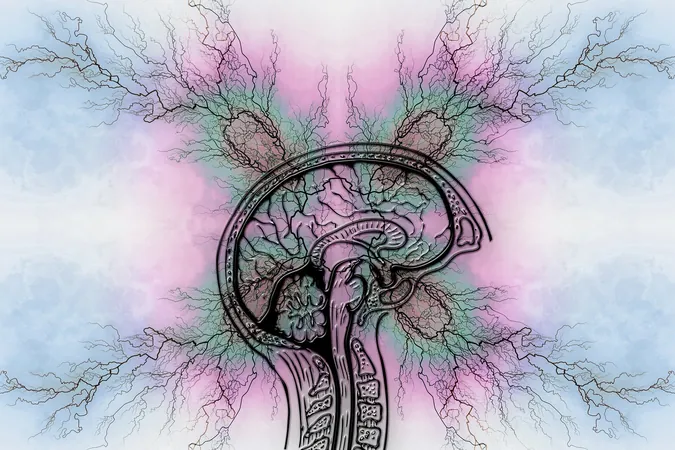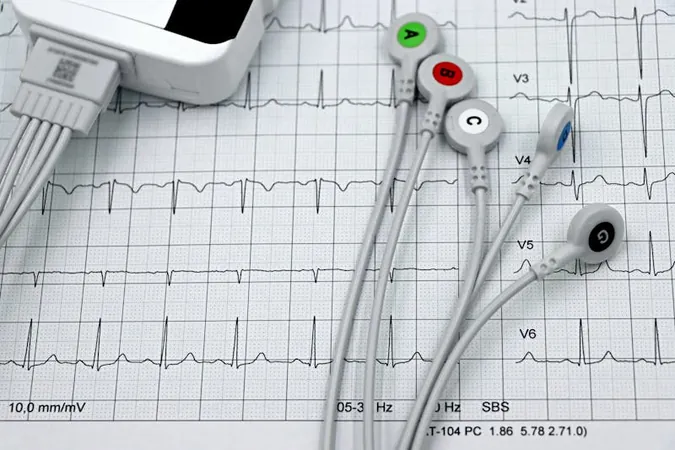
Breakthrough Therapies Transform Lives for Tourette Syndrome Patients
2024-11-18
Author: Arjun
Introduction
In an exciting development for those affected by Tourette syndrome (TS), researchers at the Kennedy Krieger Institute have unveiled promising new therapies that can dramatically improve patient outcomes. A recent study published in the esteemed Psychiatric Clinics of North America highlights the effectiveness of behavioral therapies in managing TS, a neurodevelopmental disorder that impacts approximately 1% of the population.
Understanding Tourette Syndrome
Tourette syndrome is characterized by involuntary motor and vocal tics—sudden, repetitive movements or sounds that can drastically interfere with everyday life. Those suffering from TS often face additional challenges, as it is frequently accompanied by co-occurring conditions such as anxiety, Attention Deficit Hyperactivity Disorder (ADHD), and obsessive-compulsive disorder (OCD).
Expert Insights
Dr. Hala Katato, the lead author and a prominent figure in the psychiatry department at Kennedy Krieger, emphasized the significant distress that tics can cause for patients and their families. “Our research indicates that behavioral therapies are not only effective but are the first-line treatment recommended for managing Tourette syndrome,” she noted.
Key Behavioral Therapies
The study outlines several key behavioral therapies aimed at empowering patients.
1. Habit Reversal Training
This method raises awareness of tics and provides patients with alternative behaviors to mitigate these involuntary actions. For instance, a patient might learn to subtly squint their eyes in response to a tic that causes them to widen their eyes unexpectedly.
2. Comprehensive Behavioral Intervention for Tics
Building on habit reversal, this approach combines additional interventions and relaxation techniques, including deep breathing and progressive muscle relaxation, to help manage triggers that can aggravate tics.
3. Exposure with Response Prevention
This innovative method encourages patients to confront the urge to tic without giving in. It gradually exposes individuals to the sensations preceding tics, helping to disrupt the cycle of premonitory urges and ultimately reducing tic occurrences.
Broader Applicability
Dr. Jonathan Muniz, MD, a co-author on the publication, reaffirmed the universal applicability of these therapies. “These straightforward approaches can be easily integrated into the daily lives of our patients—regardless of age—offering practical solutions for tic reduction,” he stated.
Barriers to Access
Despite the promising results, there remains a significant barrier: access to care. Current estimates reveal that a mere 25% of children diagnosed with Tourette syndrome receive the necessary behavioral therapy, primarily due to a shortage of qualified providers. In response, the Kennedy Krieger Institute is actively working toward enhancing accessibility through online therapy options and telehealth services.
Commitment to Patients
“We're committed to closing the gap and ensuring that all patients, especially those in remote or underserved areas, can access these effective treatments,” Dr. Katato affirmed.
Future Directions
As researchers continue to refine these behavioral therapies, they are also exploring complementary treatment options, including medications like d-cycloserine and advanced brain stimulation techniques, which could further enhance treatment efficacy. Additionally, ongoing studies are investigating the potential benefits of mindfulness practices, which may serve to alleviate symptoms and improve overall quality of life for patients suffering from TS.
Holistic Mission
“Our mission is holistic,” Dr. Muniz emphasized. “We aim to support the entire individual, not just alleviate tics. Many with Tourette syndrome endure concurrent issues like anxiety, ADHD, and OCD—our goal is to provide comprehensive support addressing all facets of their well-being.”
Conclusion
With these advancements, the road ahead looks much brighter for those affected by Tourette syndrome, promising a future where they can lead fulfilling lives, equipped with effective strategies to manage their symptoms.




 Brasil (PT)
Brasil (PT)
 Canada (EN)
Canada (EN)
 Chile (ES)
Chile (ES)
 España (ES)
España (ES)
 France (FR)
France (FR)
 Hong Kong (EN)
Hong Kong (EN)
 Italia (IT)
Italia (IT)
 日本 (JA)
日本 (JA)
 Magyarország (HU)
Magyarország (HU)
 Norge (NO)
Norge (NO)
 Polska (PL)
Polska (PL)
 Schweiz (DE)
Schweiz (DE)
 Singapore (EN)
Singapore (EN)
 Sverige (SV)
Sverige (SV)
 Suomi (FI)
Suomi (FI)
 Türkiye (TR)
Türkiye (TR)